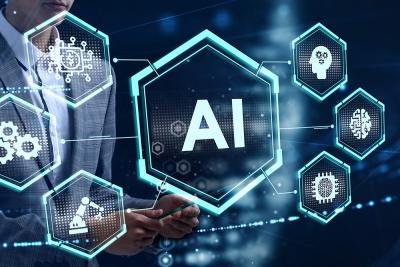The real value of artificial intelligence for intelligence analysis: Humans can do something new
The real value of artificial intelligence goes beyond saving time. In addition to what was mentioned in the previous article(The real value of artificial intelligence for intelligence analysis: Humans can do more): intelligence analysts can spend more time on high-value tasks they already have completed, and they can also add some new high-value tasks.

Doing Something New: Exploring Possibilities
As with all our experience, new technologies can bring new tasks. It is therefore likely that AI will also bring entirely new tasks to workers. Guided by the adoption of other advanced techniques, we expect that many new tasks may fall into one of the following three categories:
1. Provide new models
Intelligence is basically the use of information to reduce uncertainty among national leaders. The rapid pace of modern decision-making is one of the greatest challenges leaders face. Artificial intelligence can add value by helping to provide new ways to deliver information to decision makers faster and more efficiently. One of the ideas is to move to real-time decision support. In the past, complex models of adversary behavior took months to create and update, resulting in a long cycle for a formal intelligence product.
With artificial intelligence and big data today, analytics can be done much faster, often just lacking in real-time. This is happening now in car racing. A race team adjusts its strategy model based on thousands of data points as the cars race around the track, and a sudden change in the weather or an unexpected stop by an opponent can trigger a change in team plans in seconds. In the Formula 1 example, intelligence analysts use artificial intelligence-infused models that can quickly simulate even complex scenarios, enabling them to answer questions about decision-making, rather than waiting. Our models suggest that analysts may spend as much as 39 percent of their time advising decision makers after adopting artificial intelligence at scale.
2. A growing workforce
A motivated workforce is a more productive workforce. The task of improving employee well-being or performance has the potential to create significant new value for any organization. In the intelligence field, to perform at their best, analysts need opportunities to learn and grow. They need to keep abreast of new technologies, services, and events around the world—not just during annual training sessions, but on an ongoing basis. Artificial intelligence can help make continuous learning as broad as possible by recommending courseware based on what analysts read or write in their day-to-day work. For an analyst studying the development of China's fifth-generation fighter jet, an artificial intelligence could recommend him or her to complete a short-term training on quantum radar, or read up on the history of Chinese aviation. Artificial intelligence might also suggest which analysts need to take a break and which jobs need to be kept fresh.
3. Maintain the technology itself
From steam engines to computers, new technologies require maintenance, and artificial intelligence may be no exception. A significant challenge in using artificial intelligence effectively in high-stakes situations such as intelligence work is having confidence in the output of artificial intelligence models. In addition to tracking AI-generated leads, organizations may also need to maintain artificial intelligence tools and verify their output so analysts can use them with confidence. In medicine, Al is starting to be applied to diagnostic tools such as MRI imaging, and validating the output of Al models against known benchmarks is becoming a common new task for hospital staff. Most of the validation can be performed when designing Al tools or selecting training data. But while cancer wouldn't try to deny or deceive doctors, foreign agents might try to use adversarial examples to fool the methods artificial intelligence uses on intelligence. This means validation will need to be an ongoing task, not just for analysts but for IT staff as well.
【Dark Web】●5 Awesome Dark Web Links
銆怰esources銆戔棌The 27 most popular AI Tools in 2023
【Open Source Intelligence】●10 core professional competencies for intelligence analysts
銆怬pen Source Intelligence銆戔棌5 Hacking Forums Accessible by Web Browsers
銆怤ews銆戔棌Access control giant hit by ransom attack, NATO, Alibaba, Thales and others affected
銆怤etwork Security銆戔棌9 popular malicious Chrome extensions



